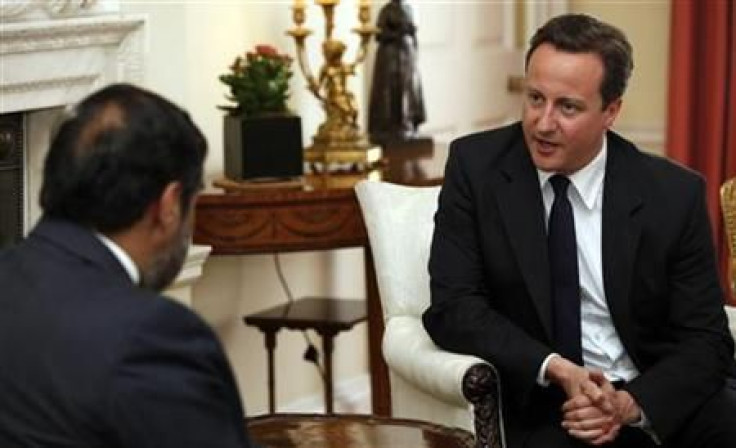What exactly is an emerging market anyway?

Most investors have a pretty clear idea of what is meant by an “emerging market” – namely, an undeveloped country with high-growth potential, in tandem with high risks and significant market volatility.
However, some of the so-called emerging markets have advanced to a point where they might be considered “developed” -- or not, depending on one’s views and criteria. Further complicating this picture is the arrival of “frontier” markets – countries even less developed than the emerging markets, but boasting even greater long-term growth potential.
“Some countries have entered a ‘grey area’ where they can reasonably be considered either ‘emerging’ or ‘developed’”, said Richard C. Kang, chief investment officer/director of research Emerging Global Advisors in New York.
There are many different definitions of what constitutes an “emerging market,” Kang noted. Some use purely numerical criteria – others may use a more qualitative approach.
“Some observers believe that it’s more important to consider what factors are driving an economy rather than some arbitrary number,” Kang said. '
“A developed, modern economy is widely regarded as one that is based more on services than goods, or a good mix of both; an emerging market has a greater focus on goods than services. Meanwhile, a frontier market typically has a heavy emphasis on natural resources rather than on finished products.”
While everyone is solidly agreed that Germany is an advanced country and India is an emerging market, there is much wrangling about the classification for nations like South Korea, Taiwan and Israel.
Emerging Global Advisors uses criteria established by the International Monetary Fund (IMF) which states that an emerging market is defined by a GDP-per-capita ratio that ranges between $2,000 and $12,000. Under this definition, IMF classifies the aforementioned South Korea, Taiwan and Israel as solidly “advanced” economies.
However, if one takes a quick glance at some of the most popular emerging markets exchange-traded funds (ETFs), one would see Taiwan and South Korea heavily represented.
Indeed, the $48-billion iShares MSCI Emerging Index Fund (NYSE: EEM) -- one of the most widely held emerging markets ETFs – had nearly one-quarter of its assets invested in South Korea and Taiwan. In fact, the fund’s number one individual holding is Korean electronic behemoth Samsung Electronics.
Similarly, the Vanguard Emerging Markets Stock ETF (NYSE: VWO) has about 24 percent of its assets parked in South Korea and Taiwan.
“South Korea and Taiwan are each stable, highly-developed countries with strong technology sectors, and a well-educated workforce,” Kang said. “And yet, iShares and Vanguard both classify them as emerging markets based on the MSCI index methodology.”
As a practical implication for investors; if, say, a consensus developed that South Korea and Taiwan should be regarded as “advanced” economies, one of the aforementioned emerging market ETFs would likely be forced to sell off their holdings in those nations, while managers of developed market funds would add them.
“With respect to the emerging market managers, a sudden sell-off of such securities might create serious tax consequences, among other potential results,” Kang suggested.
The recent troubles of the weaker countries in the euro zone – namely Greece, Portugal, and Ireland – raises questions about the true character and health of each of these nation’s economies. It was not too long ago (perhaps even a generation) when these peripheral countries were poor, largely agricultural and in many ways backward. Joining the European Union (EU) seems to have blessed them with the patina of being an advanced, modern economy – however, their seemingly intractable structural weaknesses and desperate need for financial bailouts might have unmasked them.
Declining from advanced to emerging status is not unthinkable – there are precedents for such a thing.
“By many measure, 100 years ago, Argentina was the fourth of fifth wealthiest country in the world,” Kang said. “Now it is widely regarded as either an emerging market, or even a frontier market. This kind of decline might be replicated in Europe, given the deepening problems in some of the weaker euro zone nations.”
On a strictly numerical basis, if the GDP of some of these debt-saddled European economies contracted to such a point that GDP-per-capita suffered a serious decline, the IMF may have no choice but to “downgrade” them as an emerging market (unless, they coin some new form of classification).
In addition, consider the conundrum of Turkey – a rapidly modernizing economy that has applied to join the EU.
“Turkey is now classified as emerging market,” Kang said. “But if they gained acceptance into the EU, would they suddenly be vaulted up to advanced country status?”
Kang points out that if some countries fell to “emerging market” status, it might have a big impact on big institutional investors, especially pension funds, which are mandated to maintain a certain amount of exposure to emerging markets or what may be deemed to be non-core asset categories.
“If a country’s classification were changed to developing status, these big institutions might be forced to dump stock en masse,” he said.
Finally, given how the prospects for the advanced economies are so bleak and stagnant, perhaps an emerging market is more appealing to return-seeking investors, the risks be damned.
To read more Global Markets interviews, click here
© Copyright IBTimes 2024. All rights reserved.











